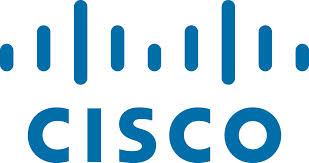Monday, September 13, 2010
Bell Acquires Rest of CTV - the Plot Thickens
Not long after my Friday post about Videotron's mobile launch, came the news about Bell's acquisition of the rest of CTV. Technically, Bell's parent - BCE - did the buying, but the net result is not at all suprising. Without mentioning CTV, this development flows very logically from what my post was surmising. Now that it's yet another telecom-related front page story in Canada, I just wanted to add some quick thoughts.
There are many angles to explore here, and I'm just going to touch on a couple. In my view, Videotron getting into mobile is a much different scenario than Bell jumping back into the content game to strengthen their mobility business. First and foremost, Videotron is in the content business - mobility is just another channel for them. Their service will be aimed primarily at existing subscribers and will bind them that much closer to keep them running to Cogeco for cable or Bell for either IPTV or satellite.
Sure, Videotron will try to make some money on voice, but it's really about data and monetizing their content. What really works for them is the captive market they're serving for French-language content. It has the potential to be a gold mine once the concept of watching TV on a mobile device becomes mainstream. That said, I think this is a one-off scenario that only applies in Quebec, and I don't see the same conditions working for Bell.
Acquiring CTV levels the playing field in a way, and at least keeps Bell on square footing with Videotron. That's fine, but we're now talking about content for mass market consumption - well, English anyway - and that cuts both ways. If you like CTV's programming, then Bell is the carrier for you. But if you don't, then switching to Bell probably doesn't make sense.
The mobile market is too nascent to conclude that content is the key to success, and certainly, the new pureplays like Wind and Mobilicity will say it isn't so. The market is just not that homogeneous. Some people want a mobile phone just to make calls and text - nothing wrong with that. Some people want to surf the Web and access whatever they want/can on their smartphone - again, nothing wrong that. And I guess there must be a segment of the market that will choose their mobile provider based on the content they offer.
It's a bit like satellite radio with Sirius and XM. Each tried to build a subscriber base with exclusive content, and the mix of programming/personalities really determined who you would go with. It was all content - the pipe had no real value. This where I see risk for Bell going this route. If George Cope's Vancouver Olympics epiphany becomes their core strategy, their success becomes more dependent on content - mainly which U.S. TV shows they lock up - and less so on the pipe - which is much more important in this world than satellite radio. Anyhow, we all saw what happened there - the market didn't like to choose, and Sirius and XM ended up as one.
Exclusive content can be great for attracting subscribers - just remember that your competitors can do the same thing. If CTV loses cachet and subscribers prefer Canwest's content, then things get tricky. The cable TV model works so differently, since we can watch all the content from all the networks in one place. These mobility content deals are different, and it's too early to tell if they will be sustainable. I can see the time coming when these competitors will cross-license content for each other's networks. The business case will dictate the need - why restrict mobile distribution to one network when strong demand exists elsewhere?
And then there are independent networks - like the CBC of course - who will never be exclusive to one mobile operator. Where do they fit in this new world? Hockey Night in Canada is by far the most widely watched content on Canadian TV. Who's going to get that for mobile consumption?
Many questions here, and this world will likely unfold faster than the operators - and the CRTC - are able to manage. And we haven't even touched on Net Neutrality which is very much the essence of where this content convergence story is going. Lots to think about from the past few days, so I'm going to pause here, reflect a bit and continue another time soon. Thoughts?
There are many angles to explore here, and I'm just going to touch on a couple. In my view, Videotron getting into mobile is a much different scenario than Bell jumping back into the content game to strengthen their mobility business. First and foremost, Videotron is in the content business - mobility is just another channel for them. Their service will be aimed primarily at existing subscribers and will bind them that much closer to keep them running to Cogeco for cable or Bell for either IPTV or satellite.
Sure, Videotron will try to make some money on voice, but it's really about data and monetizing their content. What really works for them is the captive market they're serving for French-language content. It has the potential to be a gold mine once the concept of watching TV on a mobile device becomes mainstream. That said, I think this is a one-off scenario that only applies in Quebec, and I don't see the same conditions working for Bell.
Acquiring CTV levels the playing field in a way, and at least keeps Bell on square footing with Videotron. That's fine, but we're now talking about content for mass market consumption - well, English anyway - and that cuts both ways. If you like CTV's programming, then Bell is the carrier for you. But if you don't, then switching to Bell probably doesn't make sense.
The mobile market is too nascent to conclude that content is the key to success, and certainly, the new pureplays like Wind and Mobilicity will say it isn't so. The market is just not that homogeneous. Some people want a mobile phone just to make calls and text - nothing wrong with that. Some people want to surf the Web and access whatever they want/can on their smartphone - again, nothing wrong that. And I guess there must be a segment of the market that will choose their mobile provider based on the content they offer.
It's a bit like satellite radio with Sirius and XM. Each tried to build a subscriber base with exclusive content, and the mix of programming/personalities really determined who you would go with. It was all content - the pipe had no real value. This where I see risk for Bell going this route. If George Cope's Vancouver Olympics epiphany becomes their core strategy, their success becomes more dependent on content - mainly which U.S. TV shows they lock up - and less so on the pipe - which is much more important in this world than satellite radio. Anyhow, we all saw what happened there - the market didn't like to choose, and Sirius and XM ended up as one.
Exclusive content can be great for attracting subscribers - just remember that your competitors can do the same thing. If CTV loses cachet and subscribers prefer Canwest's content, then things get tricky. The cable TV model works so differently, since we can watch all the content from all the networks in one place. These mobility content deals are different, and it's too early to tell if they will be sustainable. I can see the time coming when these competitors will cross-license content for each other's networks. The business case will dictate the need - why restrict mobile distribution to one network when strong demand exists elsewhere?
And then there are independent networks - like the CBC of course - who will never be exclusive to one mobile operator. Where do they fit in this new world? Hockey Night in Canada is by far the most widely watched content on Canadian TV. Who's going to get that for mobile consumption?
Many questions here, and this world will likely unfold faster than the operators - and the CRTC - are able to manage. And we haven't even touched on Net Neutrality which is very much the essence of where this content convergence story is going. Lots to think about from the past few days, so I'm going to pause here, reflect a bit and continue another time soon. Thoughts?
Subscribe to:
Post Comments (Atom)











No comments:
Post a Comment